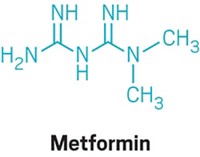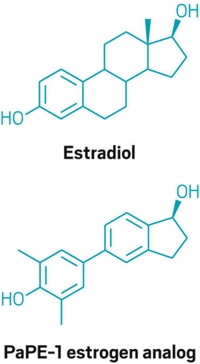Advertisement
Grab your lab coat. Let's get started
Welcome!
Welcome!
Create an account below to get 6 C&EN articles per month, receive newsletters and more - all free.
It seems this is your first time logging in online. Please enter the following information to continue.
As an ACS member you automatically get access to this site. All we need is few more details to create your reading experience.
Not you? Sign in with a different account.
Not you? Sign in with a different account.
ERROR 1
ERROR 1
ERROR 2
ERROR 2
ERROR 2
ERROR 2
ERROR 2
Password and Confirm password must match.
If you have an ACS member number, please enter it here so we can link this account to your membership. (optional)
ERROR 2
ACS values your privacy. By submitting your information, you are gaining access to C&EN and subscribing to our weekly newsletter. We use the information you provide to make your reading experience better, and we will never sell your data to third party members.
Environment
Chromium Therapy For Diabetics Is Risky
Medicinal Chemistry: Study shows Cr(III) supplements taken by diabetics to increase insulin sensitivity oxidize into toxic Cr(V) and Cr(VI) forms
by Sarah Everts
January 11, 2016
| A version of this story appeared in
Volume 94, Issue 2
Type 2 diabetics who take chromium supplements to increase the sensitivity of their cells to insulin may want to rethink the practice. A study has found that in cells the Cr(III) in the compounds is oxidized to Cr(V) and Cr(VI), forms of chromium that are known to be toxic (Angew. Chem. Int. Ed. 2016, DOI:10.1002/anie.201509065). Researchers led by Peter A. Lay of the University of Sydney previously proposed that Cr(III) supplements enhance insulin sensitivity in diabetics because the chromium is oxidized, but they had not proven that the problematic forms were found in cells. Working in mice adipose cells treated with Cr(III), Lay’s team used microfocus X-ray absorption near-edge structure, or μ-XANES, analysis to show that Cr(III), Cr(V), and Cr(VI) were all unambiguously present in the cells. They propose that the unfortunate oxidation can take place in a cell’s mostly reducing environment because cell signaling pathways, including those involved in insulin processing, often use hydrogen peroxide, a strong oxidizer. “In light of these findings, there is a need for epidemiological studies to ascertain whether Cr(III) supplements alter cancer risk,” the researchers note.




Join the conversation
Contact the reporter
Submit a Letter to the Editor for publication
Engage with us on Twitter